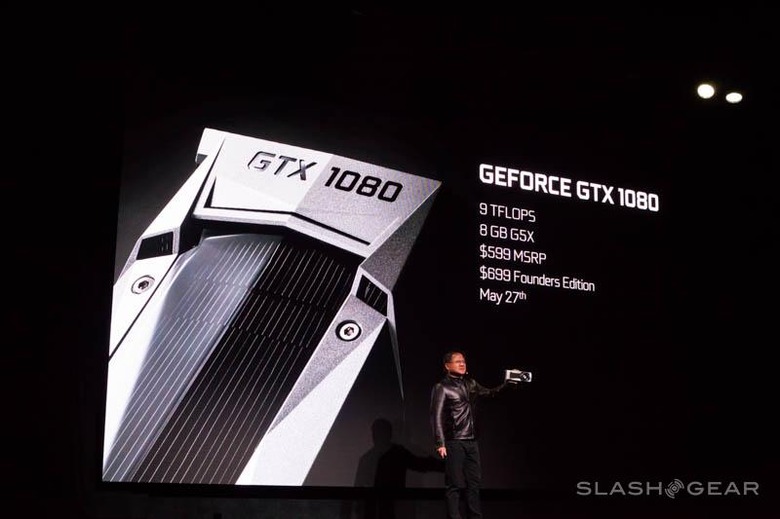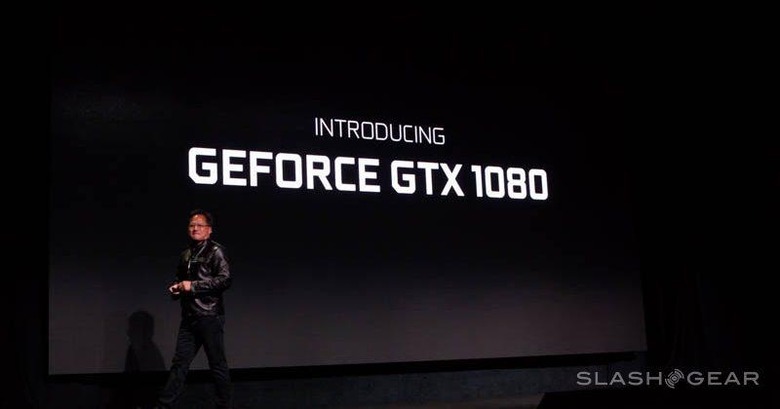NVIDIA GTX 1080 Founder's Edition: What You Need To Know
Last Friday NVIDIA made their big announcement, which we all knew was the GTX 1080 and 1070. Their performance charts and explanations of the new technologies being used were very interesting, but one little detail left many people confused. It was when they announced the Founder's Edition of the cards. Well now that the dust has settled from the event, it's time to clarify once and for all, just what makes a card a "Founder's Edition."NVIDIA GTX 1080 and 1070 – Two Titan X killers revealed
Whenever NVIDIA releases a new round of video cards, they do a limited run of their own branded cards. These have always been referred to as "reference cards." They're usually available to the public for a short while, and then are slowly phased out. Personally, I've gotten a few of these reference cards, and they're usually my favorite ones, in terms of the design. Of course, the partner manufacturers usually have a similar design that they use, and then they will also roll out their own new designs with custom cooling solutions and overclocked chips.
So that brings us to today. The "reference cards" are no longer a thing. They are being replaced by the Founder's Edition. These cards feature NVIDIA's own special premium cooling solution, which has an aluminum shroud and a backplate. It also uses low-profile components, so that it can sit comfortably in your case and allow for maximum airflow, even if you're using multiple cards in SLI.
And if you're wondering how it will overclock, during one of their demonstrations on the live stream on Friday, they had one of the Founder's Edition cards overclocked to 2.1 Ghz. It was running at 67 degrees in a crowded room with nothing but the standard air cooling. When they ran the demo previously (without a few hundred people in the room) the temperature was said to be running at 65 degrees, for reference.

One major point of confusion is whether or not these Founder's Edition cards will use specially-binned chips. While speaking to NVIDIA, they clarified to us that this is not the case. All of the cards, be it Founder's Edition or not, will be pulling from the same batch of chips. NVIDIA will not be cherry-picking chips for their own self-branded offering. This means that you'll be getting the same performance, regardless of which branded card you choose to purchase.
So what's the point of paying an extra $100 for a Founder's Edition? Well, NVIDIA believes that their custom cooler, and low-profile parts are worth the extra price. And for those that aren't worried about those particular features, other vendors will offer the same chips at a lower cost.
What's particularly interesting is that while NVIDIA always provided premium cooling on their reference boards, they did so at great expense. This was one of the reasons why they used to only do a limited run on the reference boards. By charging a premium price, the company said that they will now be able to offer these Founder's Edition cards for the life of the product, rather than just for a short while.

To sum things up, NVIDA's Founder's Edition GTX 1080 will retail for $699, and you'll get a premium cooler, designed specifically by NVIDIA. The chips will not be cherry-picked, and will be the same as any other GTX 1080 that you purchase. This will be the only version of the GTX 1080 that you will be able to buy directly from NVIDIA. These will not be a limited run, and you should be able to purchase them for as long as the 1080 is still produced.
Other companies will offer their own flavors of the GTX 1080, and these will start with a price of $599. These will include the same exact chips that the Founder's Edition uses. Each company will use their own custom cooler design, and offer GTX 1080 cards at a variety of price points.
Hopefully this clears up some of the confusion that was caused by NVIDIA's original announcement. If you still have lingering questions about the Founder's Edition, let us know in the comments, and we'll get an answer.
